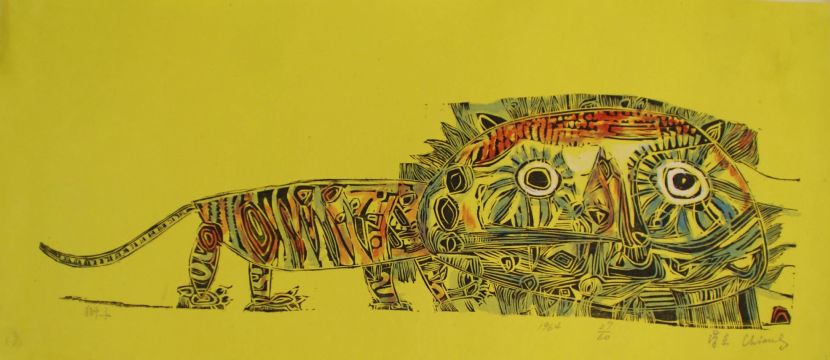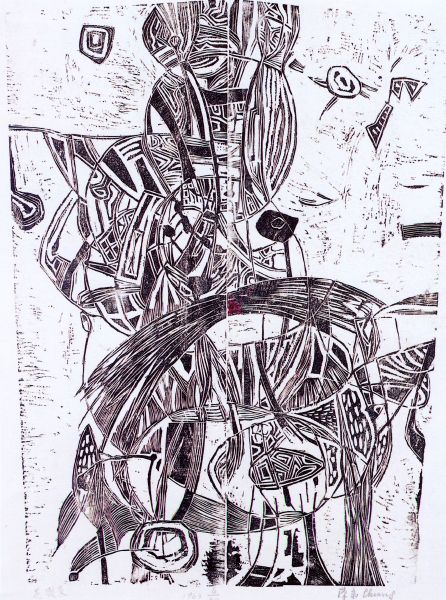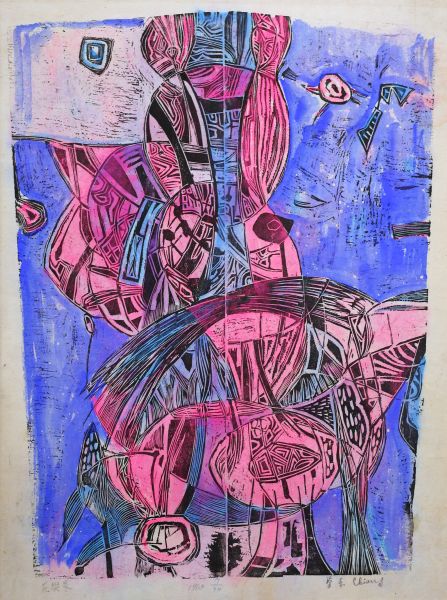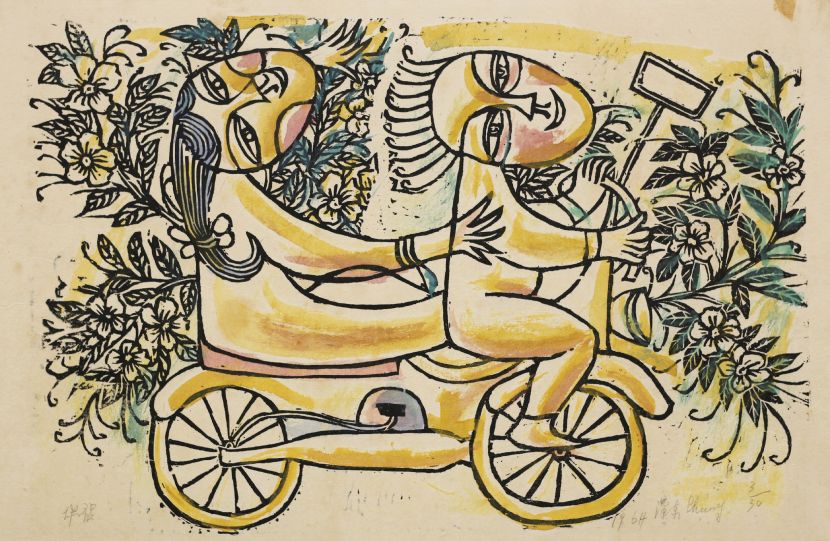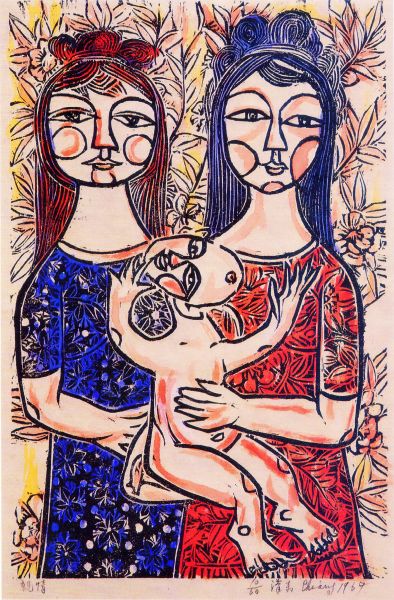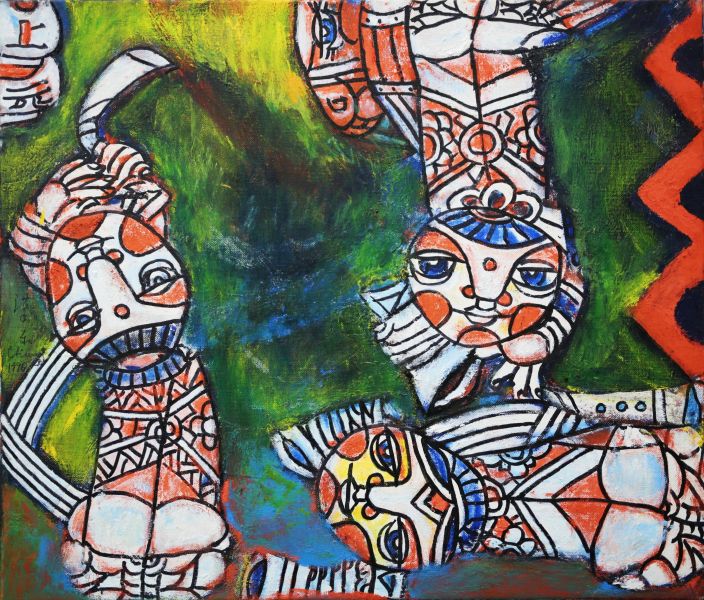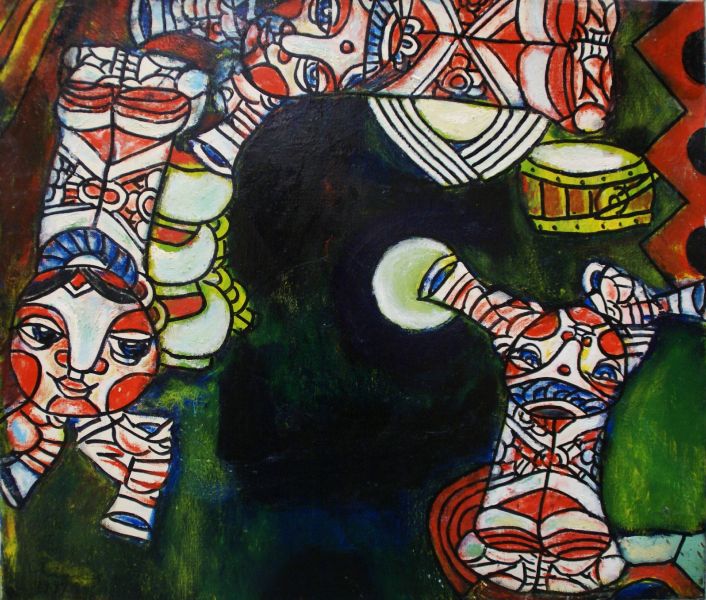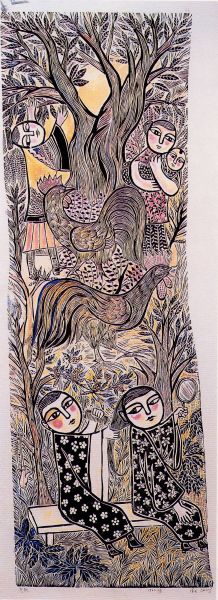Offered By

阿波羅畫廊
台灣,台北市
-
江漢東曾師事李仲生,啟蒙時期受西方立體主義影響,繪畫題材雖以民間傳說及敘事為主,卻跳脫傳統繪畫方式,以線條細膩切割出立體的人物,加上鮮豔單純的色彩,飽滿豐富的構圖方式,烘托出熱鬧華麗的民俗風味,獨然自成一格。
江漢東長期受眼疾之苦,對於藝術創作者,無疑是最大的魔障,在他有限的視野範圍,必須貼近畫作,像爬格子般逐步挪移完成創作。身體的極限,反而讓他有更大的想像空間,他把兒時聽來的故事,看來的傳記,生活的點滴畫下來,所以他畫的人物,透出一種反璞歸真的趣味,在對抗視力漸漸消退的同時,江漢東讓自己創作的花園盛開出一片燦亮的繽紛世界,期待觀眾,自他的畫作中,細細品嘗人生的喜樂悲酸。
Lee Chun-Shan was once his mentor. In the enlightenment period being influenced by the western Cubism, Han-tung Chiang mainly painted folklore and narration but in a nontraditional way exquisitely presented three dimensional figures with fresh and pure colors and rich construction, which brought out the busy and fancy side of the folk traditions, to form his own style.
Han-tung Chiang has long suffered from the eye problem. For an art creator, it no doubt is the biggest obstruct. With his limited eyesight, he has to be close to the painting in order to complete it in a slow way. Instead, the body limitation gives him a larger imagination space. He paints the stories and biographies that he learnt when he was young so the figures under his brush project a kind of fun of the early days. While fighting against the fading out of the sight, Han-tung Chiang made a colorful world in the garden created by himself in the hope of the viewers could feel the mixed feelings of life.
